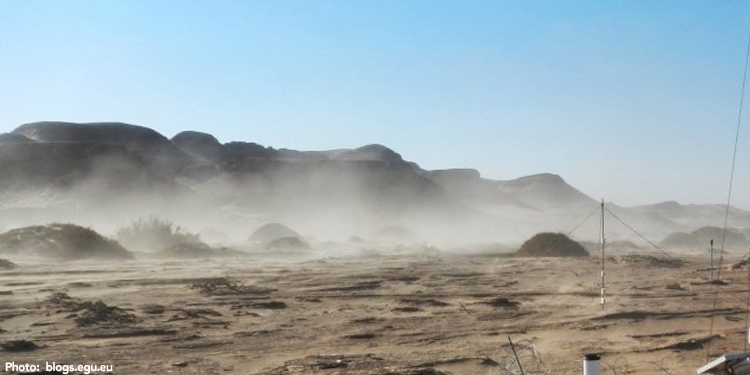Dust in the Wind
Yael Eckstein | December 4, 2022

LORD, what are human beings that you care for them,
mere mortals that you think of them?
They are like a breath;
their days are like a fleeting shadow. — Psalm 144:3-4
In honor of my father, Rabbi Yechiel Eckstein, and his lifework helping Christians understand the Jewish roots of their faith, I offer you one of his devotional teachings from the beloved Psalms.
I was once riding a bus in Jerusalem, sitting next to a Hasidic Jew, complete with a black hat and long beard, and who was deeply immersed in the holy book in his hand. We sat in silence.
Suddenly, a song started to play on the bus radio. It was ‘70s rock band Kansas’ Dust in the Wind: “I close my eyes only for a moment and the moment’s gone…” The song caught my attention; no one else seemed to notice. The lyrics continued: “All we do crumbles to the ground though we refuse to see…”
At that point, my riding partner took a break from his book and looked up. The song went on, “Dust in the wind, all we are is dust in the wind…” The man turned to me and said, “You know, there is a lot of Torah in this song, a lot of truth.” Then he looked down and studied his book for the rest of the ride.
Dust in the Wind
He was right. The idea that we are merely dust in the wind does have its roots in the Bible, and most obviously in Psalm 144. The “lyrics” to this song go: “LORD, what are human beings that you care for them, mere mortals that you think of them? They are like a breath; their days are like a fleeting shadow.” But if that is truly the case — that we are nothing but a fleeting shadow or dust in the wind — then what is the value of our lives?
The Hebrew word for “human beings” is Adam. It is also the name of the first man. How did Adam get his name and why are we all called by that same name?
The Jewish sages point out that Adam was made from the dust of the earth, and the Hebrew word for dust is Adama. Adam was made from Adama. But that’s not the only substance that gave Adam life.
Adam is also connected to the word Adame, which means “similar to.” Adam was made in the image of God and was created with the capacity to be like God. The sages conclude that Adam, and all human beings, get to determine the meaning of their name. We can represent nothing more than the dust of the earth, or we can be a manifestation of eternal godliness. The choice is ours.
This is the idea that David shares with us in Psalm 144. The lyrics of the Kansas song are in sync with David’s message — human beings are just dust in the wind. However, we can choose to become more. On our own, we are nothing, dust in the wind, but when we choose God, we are infinitely more.
